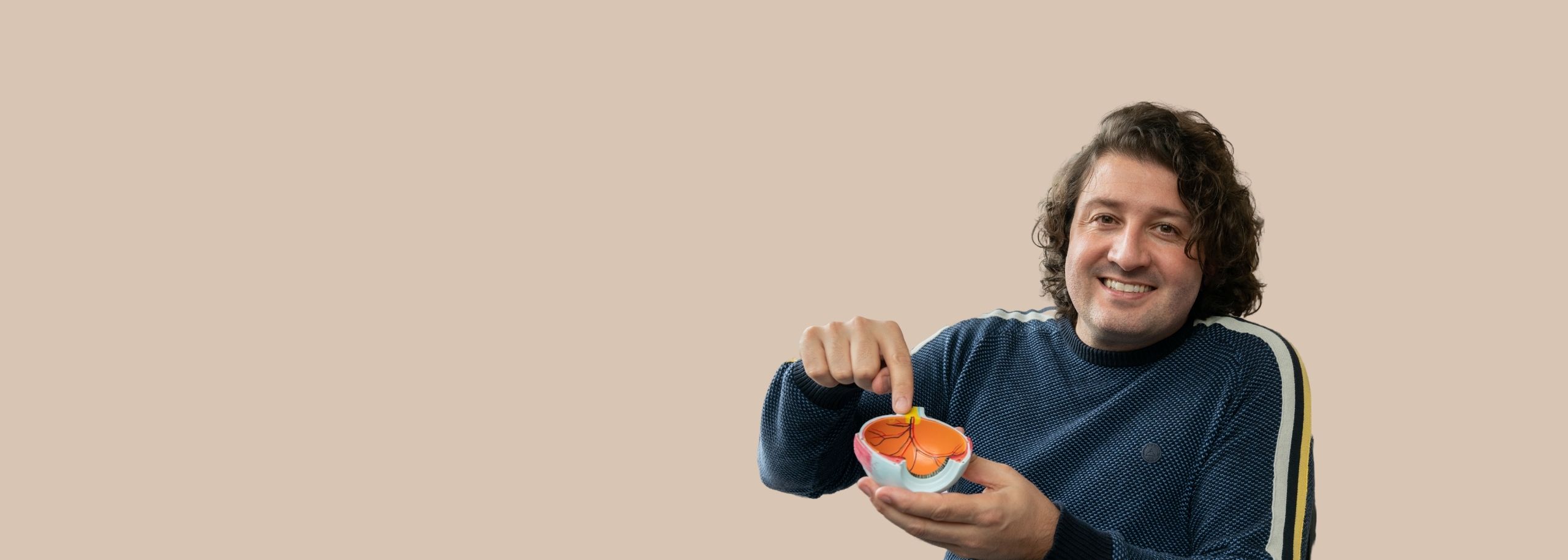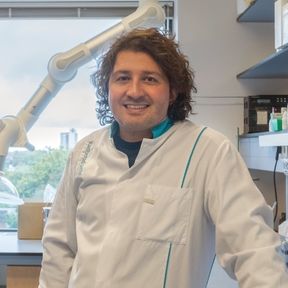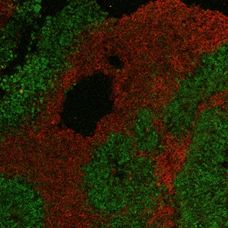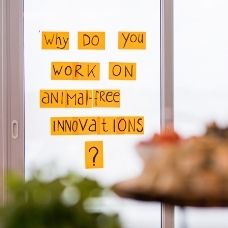Text & pictures provided by Alex Garanto
In this recurring section “Drijfveren”, scientists explain what motivates them to go against the current and develop animal-free alternatives. This time it is up to dr. Alex Garanto, an assistant professor at the Departments of Pediatrics and Human Genetics of the Radboud university medical center. His research project focuses on the development of a retina-on-chip to design and test personalized treatments for rare diseases affecting the retina.
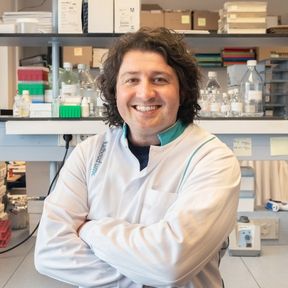
What is the retina-on-chip and how does it work?
“The retina is the part of the eye that allows our eyes to convert light into signals that will allow the generation of an image. Our project focuses on the development of a retina-on-chip. For this retina-on-a-chip system we are using human-derived stem cells. Because of developments in science, we can use human skin or blood cells and reprogram them into induced pluripotent stem cells (iPSCs). These iPSCs can then be converted into almost any type of cell in our body. In this project, we use these cells to develop several types of retinal cells for our retina-on-a-chip, and this is the first step towards creating an functional system in a dish.
Our research aims to design and test personalized treatments for rare diseases that affect the retina. However, for that we need to have robust models that allow us to study the therapeutic efficacy. For our research models we use cells from patients with these retinal diseases, which makes the retina-on-a-chip a perfect model to study these diseases. Specifically, we want to design and test the effects of therapeutic molecules, something we know as genetic therapy. This approach aims to correct a genetic defect that causes the disease. ”
In order to be able to study retinal diseases and to develop personalized treatments for patients, it is crucial to have a good research model. For that, human models are needed and animal models are not always informative.
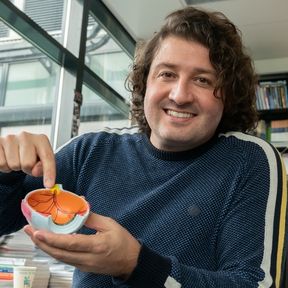
Can you tell us about what motivates you?
“I have always wanted to contribute to improving the quality of life of patients. In order to be able to study retinal diseases and to develop personalized treatments for patients, it is crucial to have a good research model. For that, human models are needed and animal models are not always informative.
I have had previous experiences with research using mice. But these mice did not exhibit the same disease signs as observed in humans (we call this a phenotype). This is because there are genetic, physiological and behavioral differences between mice and humans. For example, as humans we have specific genes in our genome, that other species do not have, or some genes just have another function in different animal species, etc. That is why animal models do not always resemble the human situation and therefore are not always reliable models to study retinal diseases.”
My biggest dream is that the human models we want to create, can be used to model diseases and test treatments that can reach the clinic and help patients.
My dream for animal-free innovation in the future
“I started developing retinal cells in a dish back in 2014, after visiting a lab in the United States that worked with these research models. Since then, I found it fascinating and I realized that these models have more potential than I initially expected. My biggest dream is that the human models we want to create, can be used to model diseases and test treatments that can reach the clinic and help patients.
I think researchers should always look for alternatives to animal testing. By investing time and resources into developing human oriented models, we can increase their potential. We can work towards a future in which we might be able to use the retina-on-a-chip to evaluate if treatments can restore vision. And in doing so, we can reduce the number of animals used in animal testing for research purposes.”
Alex’ research project is co-financed by the Association of Collaborative Health Funds (SGF), NWO and ZonMW with a PPP allowance made available by the Top Sector Life Science & Health (Health~Holland), as part of the joint research program Human Measurement Models.

